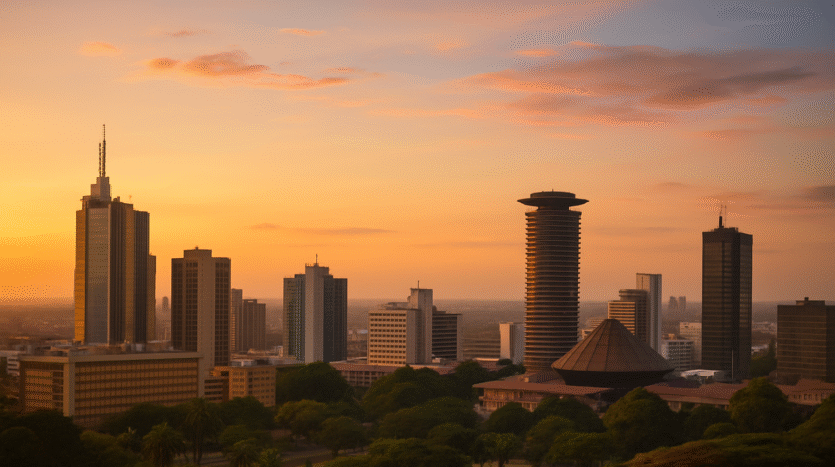Why You Should Buy a Rental Property in Nairobi. Comparing Nairobi to Cape Town and Dubai
Nairobi is rising as one of Africa’s strongest real estate markets. Investors who once looked to South Africa or the UAE are now turning their attention to Kenya’s capital for one main reason: returns backed by real economic demand.
If you’re considering a rental property, Nairobi presents a blend of population growth, infrastructure development, and affordable entry points that Cape Town and Dubai simply can’t match.
1️⃣ High Demand From a Young, Growing Population
More than half of Kenya’s population is under 35. Nairobi is the migration destination of choice for young professionals, students, and entrepreneurs.
This creates consistent rental demand in key areas like:
- Westlands
- Kilimani
- Lavington
- Kileleshwa
- Karen
- Ruiru & Thika Road corridor
Compared to Cape Town or Dubai, Nairobi’s demand is organic, driven by local employment, universities, and entrepreneurship—not just tourism or seasonal expat populations.
2️⃣ Stronger Rental Yields vs. Cape Town & Dubai
Cape Town has excellent scenery and tourism—but tourism-driven rentals fluctuate with seasons.
Dubai offers luxury returns—but entry prices are extremely high, and many developments compete aggressively, reducing yield.
Nairobi, on the other hand:
- Middle-income housing is permanently under-supplied.
- Tenancy turnover is lower.
- Purchase cost is significantly lower than Dubai or Cape Town.
A well-located 1–3 bedroom apartment in Nairobi can achieve sustainable long-term returns.
🔗Why You Should Invest In Kenya
3️⃣ Affordable Entry Price & Better ROI Potential
A similar quality apartment that costs:
- KES 8M–15M in Nairobi
- KES 20M–35M+ in Cape Town
- KES 40M–60M+ in Dubai Marina or JVC
Your investment horizon matters. In Nairobi, your capital is not swallowed by brand premiums or speculative luxury pricing.
Instead, you buy value—land, location and urban growth.
4️⃣ Rapid Public & Private Infrastructure Growth
Nairobi’s infrastructure pipeline continues to expand:
- Expressway (Mlolongo–Westlands)
- Two Rivers & Waterfront mixed-use districts
- Konza Technopolis (Silicon Savannah)
- Tatu City & Northlands urban development
- New bypasses, metro bus routes, and ring roads
These developments increase tenant interest and property value every year.
Cape Town and Dubai already have mature infrastructure. Growth is slower and appreciation is mostly priced in.
5️⃣ Nairobi Is a Regional Business Hub
Nairobi hosts the headquarters of:
- UN offices (largest in the Global South)
- Major banks & fintech companies
- Multinational NGOs & global consultancies
- Fast-growing tech firms & startups
This means continuous arrival of:
- Foreign workers
- Diplomats
- Remote workers
- Skilled local graduates
These tenants pay well and prefer secure gated apartments or modern townhouses.
Dubai’s tenants are mostly international; Cape Town mixes tourism and retirees.
Nairobi’s tenant base is driven by real economic activity.
6️⃣ Lower Regulatory Barriers for Local & Foreign Buyers
South Africa has strict property laws in some sectors and higher taxation.
Dubai allows foreign investment—but only in designated zones, and service charges can be very high.
Kenya offers a simpler process:
- Leasehold and freehold ownership
- Fewer restrictive zones
- Transparent strata titles in modern developments
The process is faster when you work with a reputable realtor, legal counsel, and developer.
🔗 Internal link suggestion:
Learn about our buying process
7️⃣ Nairobi Is Still Early in Its Growth Curve
Cape Town and Dubai are mature markets.
Prices grow, yes—but at a smaller percentage year-to-year.
Nairobi is in its expansion stage:
- New suburbs become investment hotspots (Ruiru, Syokimau, Ruaka, Athi River)
- New malls and business hubs follow
- Property values rise with infrastructure
This gives investors a chance to enjoy both rental income AND capital appreciation.
Final Thoughts
Cape Town and Dubai are excellent cities—but as real estate investment markets, they are expensive, saturated, and dependent on tourism or expat cycles.
Nairobi is driven by population growth, accessible pricing, a strong business environment, and continuous infrastructure expansion.
This is why more investors—local and international—are buying rental properties here.
If you’re ready to start your investment journey, we’re here to help.
🌍 Sarabirealtygroup.co.ke — Your trusted partner in Nairobi real estate.

